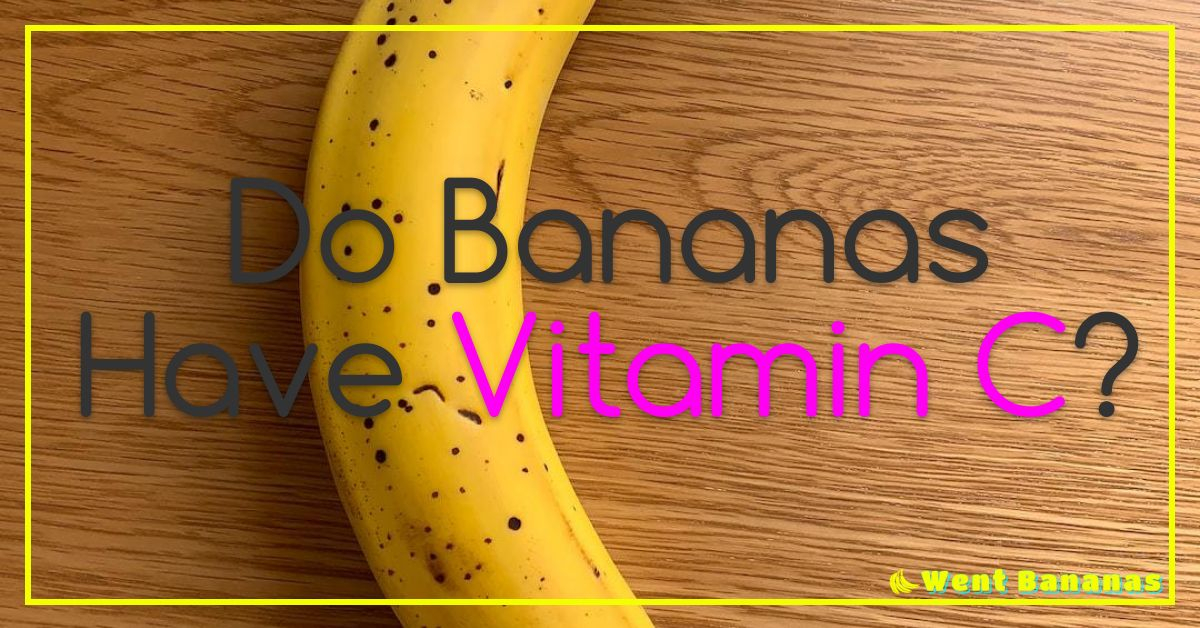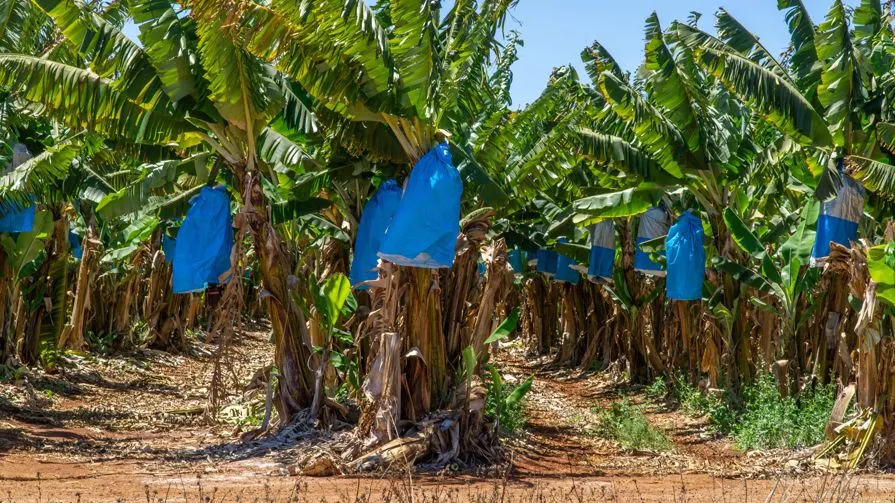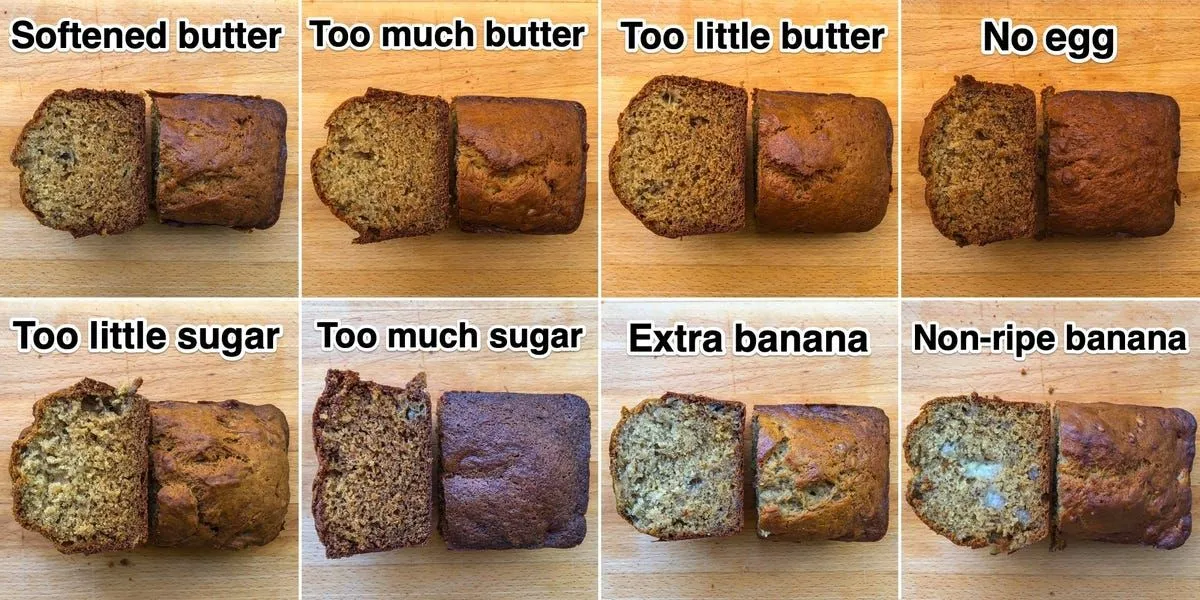Do bananas contain Vitamin C? It’s an important question to ask, as Vitamin C is essential for a healthy body and mind, and many people turn to bananas as a reliable source of vital nutrients.

In this article, we’ll be exploring the answers to these questions and more. We’ll discuss what vitamin C is and how much vitamin C can be found in a banana. We’ll look at the benefits of eating bananas for vitamin C, as well as other natural sources of nutrients that may contain higher concentrations.
Finally, we’ll offer five tips on how to increase Vitamin C intake naturally without eating too many bananas.
If you’re looking to find out whether bananas are an effective way to increase Vitamin C intake, then keep reading!
What Is Vitamin C?
Vitamin C, also known as ascorbic acid, is an essential vitamin found in many fruits and vegetables. It is vital for a healthy life — it helps the body form collagen to repair tissues throughout the body and enhances immunity.
Additionally, Vitamin C plays an important role in synthesizing hormones involved in blood clotting and protecting cells from free radicals that cause oxidative damage. Without sufficient daily intake of this nutrient, our health can suffer significantly over time resulting in symptoms like fatigue or weakened immune system response.
Vitamin C can be consumed through foods such as citrus fruits (oranges), strawberries, cantaloupe, kiwi fruit, and broccoli; however, supplementation may be necessary if we are unable to get enough from our diet alone.
Generally speaking, adults should aim for around 75-90mg per day depending on age/gender with infant requirements being much less at 25-45 mg/day. The best way to ensure you’re getting your recommended dosage is by eating a balanced diet filled with plenty of fresh produce while supplementing when needed!
How Much Vitamin C Do Bananas Contain?
Bananas are a great source of vitamin C, containing approximately 8.7 mg in every 100 g of fruit. This is equivalent to around 15% of your daily recommended intake and makes them an excellent snack choice for those looking to up their vitamin C levels naturally.
Additionally, bananas contain several other vitamins and minerals such as potassium, manganese, and folate which make them a valuable addition to any balanced diet.
The Benefits of Eating Bananas for Vitamin C
Eating bananas is a great way to get your daily dose of vitamin C. Bananas are packed with nutritional benefits, and they contain more than just potassium. The high levels of vitamin C found in the fruit can help boost your immune system and fight off infection-causing bacteria and viruses.
Additionally, for those who do not like taking supplements or eating oranges as their source of vitamin C, a banana will provide you with similar benefits without the added hassle.
Bananas also have an abundance of other vitamins such as B6 which helps regulate blood sugar levels while maintaining healthy nerve cells; magnesium which helps build bones; copper which produces red blood cells; biotin to promotes healthy skin and hair growth; folate for DNA repair and cell division; phosphorus which is important for strong bones & teeth health; zinc promoting better wound healing capacity among other things.

All these incredible vitamins work together in synergy to ensure we stay fit, energized, stronger immunity – making them the perfect addition to our diets!
Foods with More Natural Sources of Vitamin C Than Bananas
Eating a balanced diet is essential for maintaining optimal health, and getting enough vitamin C is no exception. Bananas are often thought of as the best source of this vital nutrient, but there are several other foods that can offer more natural sources of vitamin C than bananas.
These include citrus fruits such as oranges, lemons, and limes; red bell peppers; broccoli; kale and spinach; kiwi fruit; papaya; strawberries and pineapple. All these foods contain higher levels of vitamin C than bananas do – with some containing up to twice the amount per serving!
In addition to being rich in this important nutrient, many of these items also boast higher concentrations of antioxidants which help to protect against free radical damage in the body caused by environmental toxins such as pollution or cigarette smoke.
Eating a variety of food from all five food groups will provide your body with valuable nutrients like Vitamin C while helping you maintain good health overall.
4 Tips to Help Increase Vitamin C Intake Naturally Without Eating Too Many Bananas
Vitamin C is an essential nutrient for healthy living, but getting enough of it can be difficult.

« The Ultimate Guide to Safely Cutting Bananas for Your Baby’s First Food
How to Make Delicious Banana Bread with Honey: Step-by-Step Recipe and Expert Tips »
Fortunately, there are many ways to increase your daily vitamin C intake without relying solely on bananas and other fruits. Here are five tips that can help you get the most out of your diet:
- Eat a variety of fruits and vegetables – Fruits such as oranges and grapefruits provide high levels of vitamin c which should form the basis for any balanced diet. However, don’t overlook cruciferous vegetables like broccoli or kale which contain their own beneficial antioxidants too!
- Incorporate seafood into your meals – Seafood such as salmon is rich in Omega-3 fatty acids while also providing some Vitamin C content. Additionally, fish livers are excellent sources of natural Vitamin A so consider adding these dishes to your regular rotation if possible!
- Use spices liberally – Many herbs have been found to be reliable sources of Vitamins including oregano which contains a decent amount per teaspoon serving; similarly paprika has proven popular amongst cooks due to its ability to retain large amounts when cooked correctly (as long as you avoid burning it)!
- Include fortified products – Cereals often come packaged with added vitamins during manufacturing meaning they could represent better value than buying individual produce items separately; the same goes for plant-based milk especially almond varieties so check labels carefully before making decisions about purchases accordingly!
Final Thoughts
It’s clear that bananas are an excellent source of vitamin C, containing around 10mg per medium-sized banana. Eating just one or two a day can have beneficial effects on your health and help you to increase your natural intake of this important vitamin.
But remember there are other foods that contain higher amounts than bananas, so be sure to vary up your diet with these alternatives too!
To learn more about the benefits of eating for Vitamin C and how you can best get enough into your diet naturally without overdoing it on the bananas, join our newsletter today!











